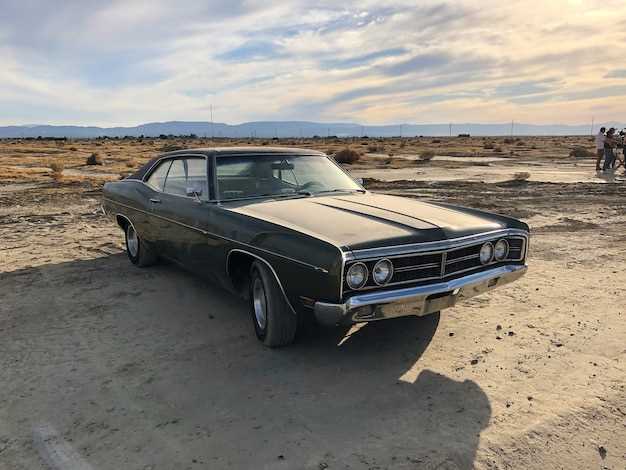
When it comes to car modifications, enthusiasts often seek to enhance the performance, aesthetics, and overall driving experience of their vehicles. Among the most popular models for modification is the Dodge Charger, known for its robust design and powerful engine. However, while modifications can significantly boost a car’s capabilities, they also raise important legal questions that owners must consider.
Understanding the Law is crucial for anyone planning to modify their Dodge Charger. Different regions have varying regulations regarding vehicle modifications, which can pertain to emissions standards, safety requirements, and noise restrictions. Owners must navigate these legal frameworks to avoid potential penalties, including fines or even the revocation of vehicle registrations.
Moreover, modification can affect not only the legality of the vehicle but also insurance policies. Insurance providers may have specific clauses related to modified vehicles, which can impact coverage options and claims in case of accidents. It is advisable for owners to consult with insurance representatives before making significant changes to their Chargers. Understanding these legal aspects is essential for responsible ownership and modification of a Dodge Charger.
Understanding State Regulations for Vehicle Modifications

When it comes to modifying vehicles, particularly iconic models like the Dodge Charger, it is crucial for owners to understand the various state regulations that govern such changes. These regulations are designed to ensure safety, environmental compliance, and roadworthiness of modified vehicles.
Each state in the U.S. has its own specific set of rules and guidelines regarding vehicle modifications. Here are some key aspects to consider:
- Safety Standards: Modifications must comply with established safety standards. This includes changes to brakes, suspension, and lighting systems.
- Emissions Regulations: Many states have emissions laws that dictate the types of modifications that can be made, particularly concerning exhaust systems and engine modifications.
- Inspection Requirements: Some states require vehicles to undergo inspections after modifications are completed to ensure they meet state regulations. This may involve checking the integrity and functionality of modified components.
- Registration and Title Changes: Significant modifications may necessitate updating the vehicle’s registration and title to reflect changes such as engine swaps or body alterations.
To navigate state regulations effectively, vehicle owners should:
- Research the specific laws applicable in their state regarding vehicle modifications.
- Consult with local automotive experts or modify shops familiar with state laws.
- Engage with state regulatory agencies if uncertainty exists regarding compliance.
- Keep thorough documentation of all modifications, including receipts and design specifications, in case they are needed for inspections or legal inquiries.
By adhering to state regulations, owners of modified Dodge Chargers can enjoy their vehicles while ensuring they are safe and compliant with the law.
Insurance Implications of Modifying Your Dodge Charger

When considering modifications for your Dodge Charger, it’s crucial to understand the insurance implications that may arise. Customized vehicles can significantly alter the risk profile assessed by insurance companies, which can lead to changes in coverage options, premiums, and even eligibility for certain policies.
First, modifications may increase the value of your vehicle, which could necessitate a reassessment of your current coverage. Standard policies usually cover only the factory equipment, so additional modifications might require special coverage or an endorsement to fully protect your investment against damage or theft.
Insurance companies often assess vehicles based on safety standards and regulations. If modifications compromise the vehicle’s safety, this may lead to higher premiums or even denial of coverage. For example, performance enhancements that affect braking systems or suspension could be viewed as increasing the likelihood of accidents, prompting insurers to adjust your policy accordingly.
It is essential to disclose all modifications to your insurance provider. Failing to do so can result in coverage denial during a claim. Additionally, some insurers offer specialized policies for modified vehicles, which not only cover the modifications but also take into account the unique risks associated with them.
Given the varying regulations by state and insurance providers, it is advisable to review your policy and consult with your insurer before making any significant modifications. Understanding these implications will help ensure you maintain proper coverage and avoid potential legal issues in the event of an accident or loss.
Compliance with Emission and Safety Standards in Vehicle Upgrades
When it comes to modifying Dodge Chargers, vehicle owners must ensure that any upgrades comply with current emission and safety standards. Modifications can affect engine performance, exhaust systems, and overall vehicle safety, which may lead to legal ramifications if not properly addressed.
Emission regulations are established by federal and state authorities to control the amount of pollutants emitted by vehicles. Owners must consider whether modifications, such as engine swaps or aftermarket exhaust systems, comply with these regulations. Notably, many modifications can result in a vehicle exceeding allowable emission levels, potentially leading to fines or penalties.
To avoid issues, it is essential to research and adhere to guidelines set forth by the Environmental Protection Agency (EPA) and local regulatory bodies. This includes seeking modifications that are certified as compliant with emission standards and retaining documentation of any upgrades performed.
Safety standards also play a critical role in vehicle modifications. Any changes to the suspension, brakes, or exterior must meet safety guidelines to ensure the vehicle remains roadworthy. Upgrades that compromise safety features, like airbags or structural integrity, can result in significant penalties and increased liability in the event of an accident.
Vehicle owners should consult with professionals who specialize in automotive modifications to ensure compliance with all relevant regulations. It’s also wise to check the vehicle’s insurance policy, as non-compliant modifications may lead to coverage issues or denial of claims.
In summary, compliance with emission and safety standards is vital for Dodge Charger owners seeking to modify their vehicles. Understanding and following regulatory guidelines will not only safeguard the owner’s investment but also promote responsible vehicle ownership.




